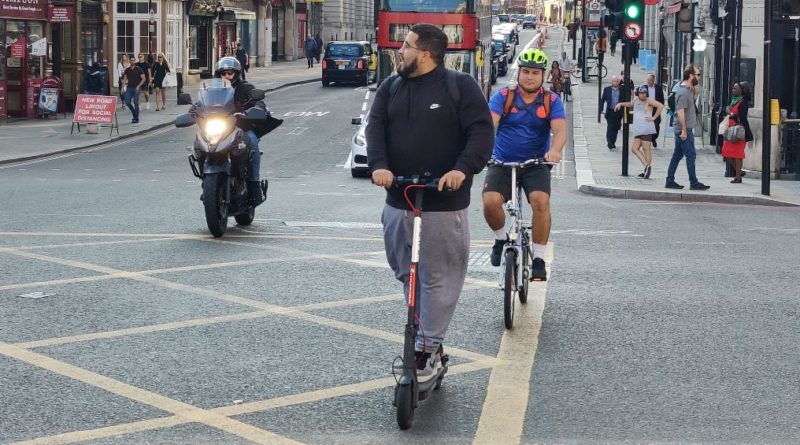Queen’s speech: e-Scooters, energy and retail news
Earlier this week the Queen’s Speech (delivered by Prince Charles for the first time) brought to light the Government’s proposals for boosting the economy and notably for the bicycle trade there were snippets on e-Scooters and other deliverables affecting retail. CI.N rounds up the key take aways…
Landlords to be pushed to rent out empty premises
Living in a town with an increasingly barren high street is not uncommon in the UK at present and it’s not a good look for those in power at a time when the economy needs a shot in the arm.
Therefore a proposal to force landlords to rent out empty properties with retail capability by way of retail auctions is an interesting idea, but could be a non-starter, according to lawyers.
Property Reporter has RWK Goodman retail lawyer Vicky Hernandez as saying: “Larger landlords, particularly in shopping centres, will want some degree of control over the tenant mix. They, and existing retailers, will not want direct competitors opening next to each other, or retailers that do not fit the current tenant portfolio. Existing retail tenants may also and quite understandably feel put out if neighbouring retail units are let on more favourable terms, and even more so if those tenants impact their own business.”
Hernandez adds that many properties will now need significant investment to align with higher environmental and sustainability standards now outlined by Government. Landlords are unlikely to wish to foot these bills and tenants equally put off by any notion of passed on bills. Added to that, lenders may be reluctant to lend further to those who have a property empire built on debt.
E-scooters set for full legalisation
The talking point for many was what the Government would do with the legislation around e-scooters. While the speech itself ignored the subject, it has since been confirmed that plans are afoot to fully legalise private ownership. This has been met with predictable horror by some of the less objective national press, but otherwise warmly welcomed as a progressive step for encouraging people out of cars in urban spaces.
A regulatory framework independent of cycling and eBike rules will now be created around smaller, lighter zero-emission vehicles.
In the House of Lords a Government spokesperson said: “Their popularity is clear and new rules are needed to improve safety and crack down on illegal use while unlocking innovation and growth in this multi-billion pound industry. New powers would allow the Government to decide which vehicles fall into this new category in future.”
CI.N research shows the enthusiasm for stocking of e-scooters by bike retailers to be dropping, 49% said they will carry less than they did last year, 48% “the same” (including those who never have carried them) and just 4% interested in upping stocks.
Beryl CEO and Co-Founder, Phil Ellis, said of the update: “We welcome any legislation that seeks to remove barriers to sustainable transport and encourage the take up of greener transport transport options, reducing road congestion while improving air quality and public health.
“The success of our schemes has shown that, by instilling high standards of safety and operational control, you can introduce safe and sustainable schemes that can form an essential part of an integrated multimodal urban transport network.
“The key is to ensure delivery in partnership with authorities and in consultation with communities and key stakeholders and we have a proven track record of doing this successfully.”
Transport Bill
It will come as little surprise that a car-centric approach remains in revisions to the Transport Bill and this time around the big changes are proposals to fast-forward roll out of EV charge points. This, hopes the Government, will stimulate people to switch from petrol or diesel cars, which it looks to transition away from by 2030.
Energy Security Bill
This Bill is designed to improve British energy security in the face of new challenges and will outline ways to minimise future disruption to the supply of fuels.
The news came with confirmation that the retail price cap will be extended beyond 2023, plus new emergency powers to ensure the supply of fuels.
Commenting on the draft Energy Security Bill published today as part of the Queen’s Speech, Simon Virley CB, Vice Chair and Head of Energy and Natural Resources at KPMG said: “The measures set out today in the draft Energy Security Bill are all welcome steps to building a low carbon economy over the longer term. But there is nothing in the draft Bill that will help consumers with the cost of living crisis in the short term, or help improve energy efficiency, which is the most cost effective way to permanently reduce energy bills, lower carbon emissions and reduce our dependence on imported oil and gas.”
Non-Domestic Rates Bill
Reform to the business rates system is apparently to be brought forwards, with work focused on more frequent revaluations, with investment pushed through a new 12-month relief for improvements made to properties.



